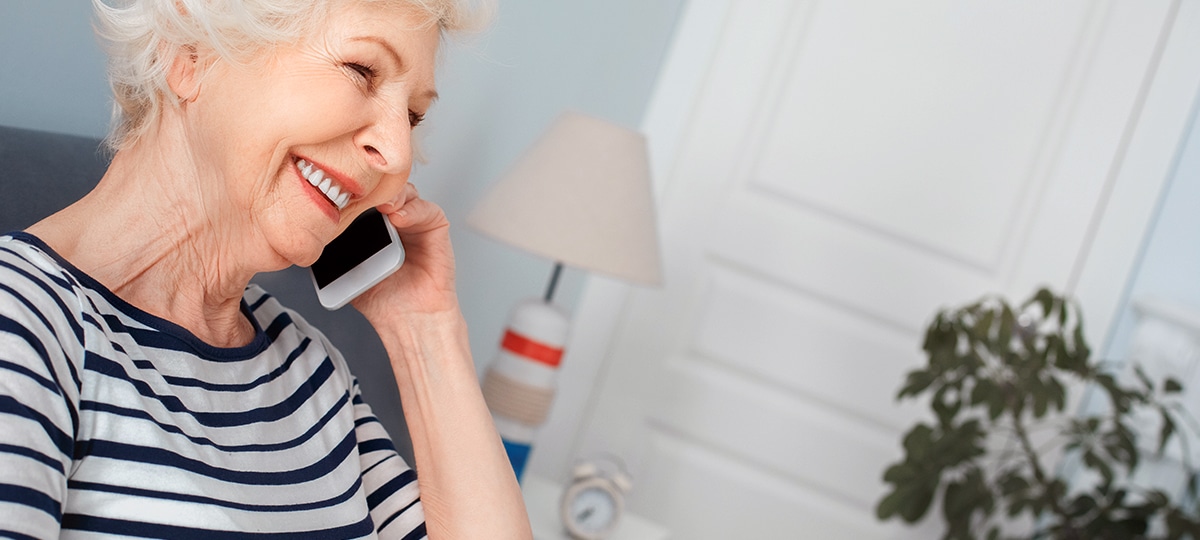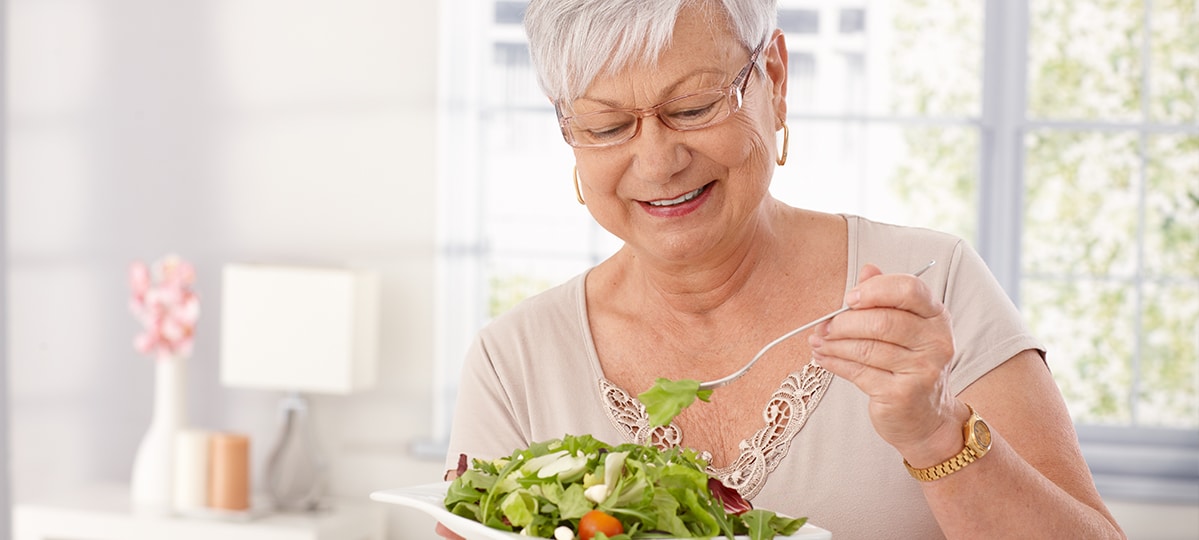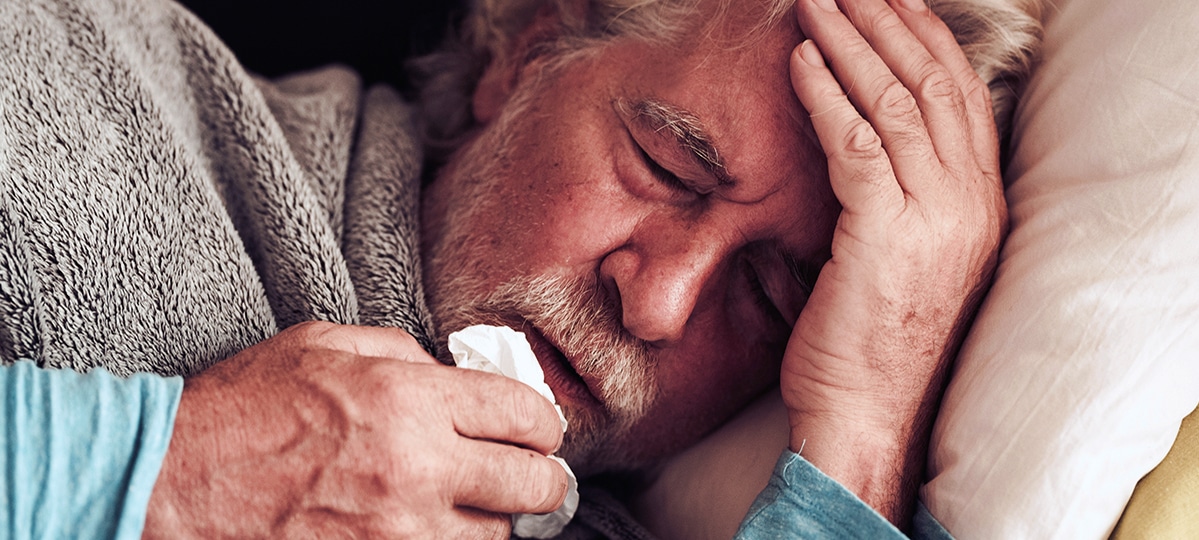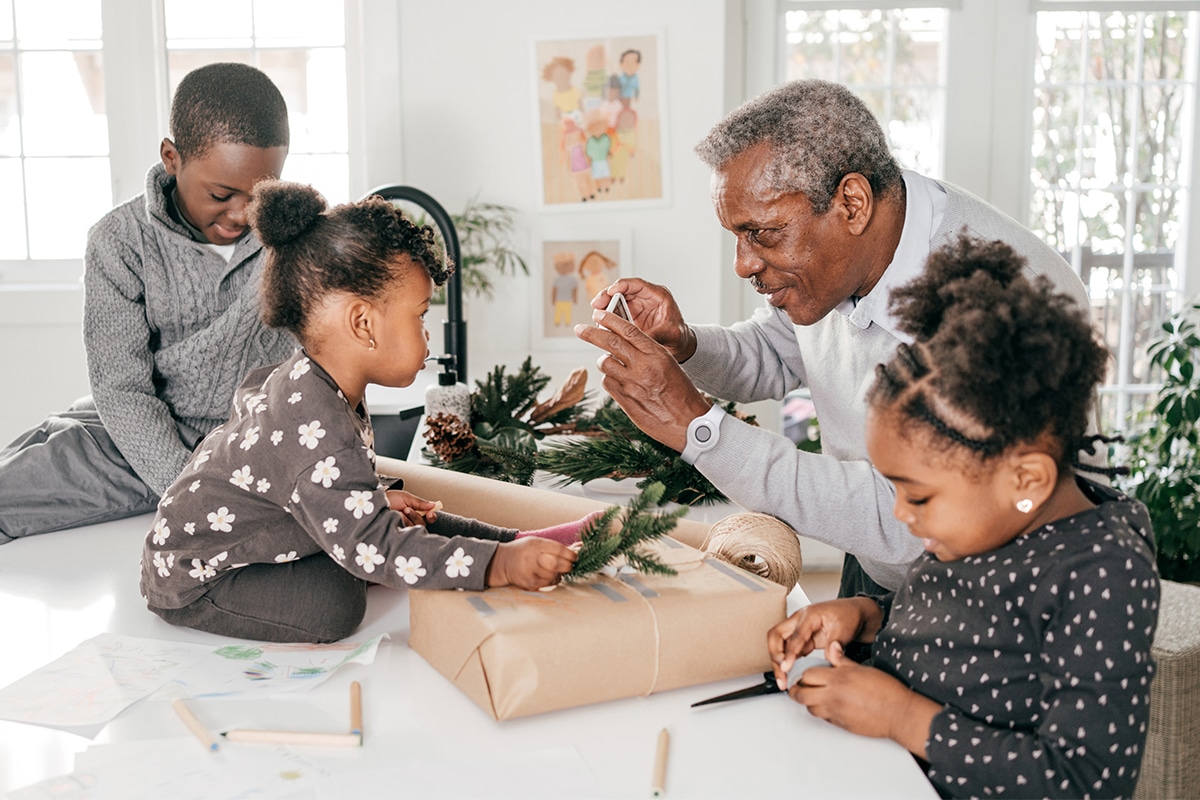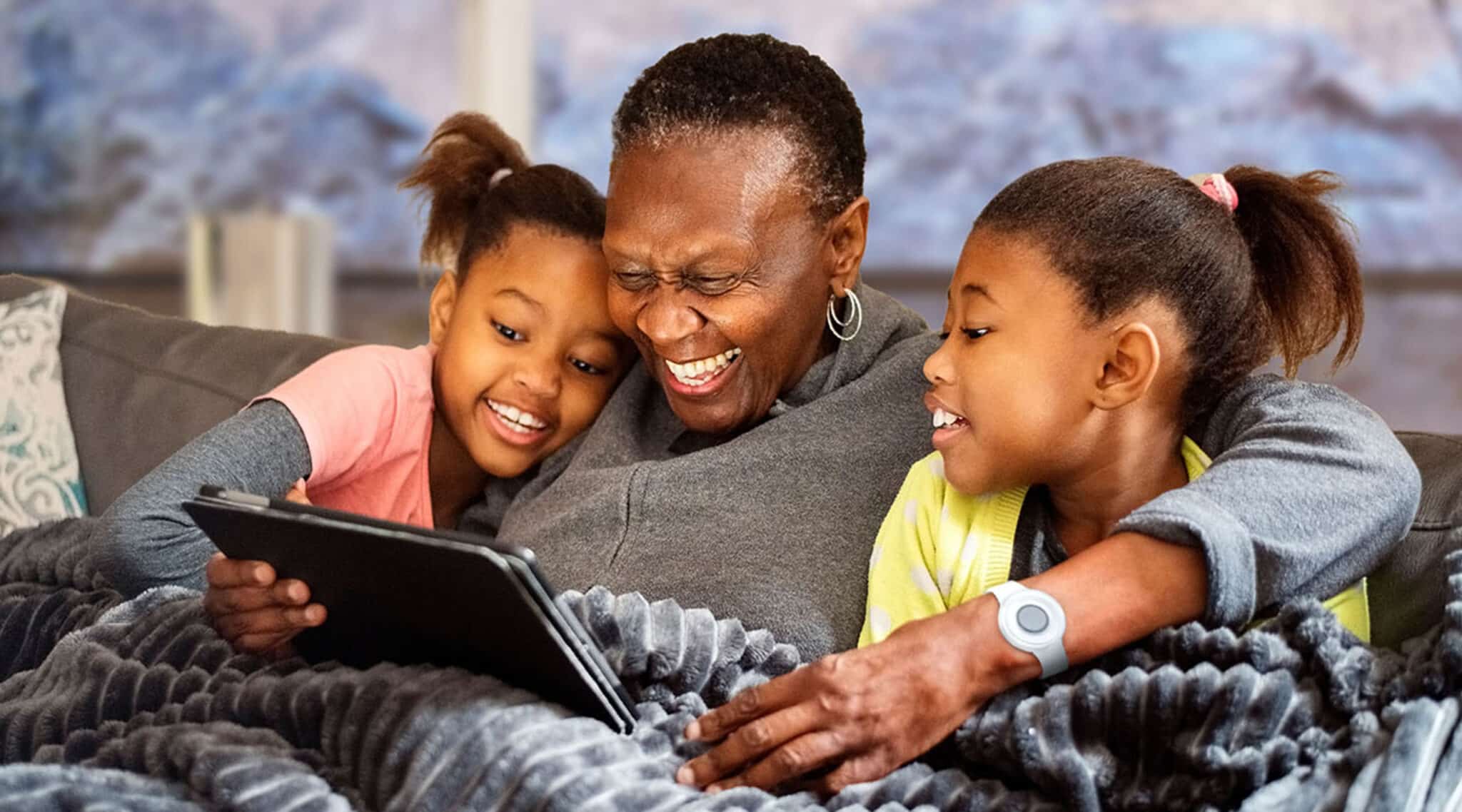We’re all essentially on lockdown amid the coronavirus crisis, and ironically that public-health solidarity could bring greater social connectivity with older adults, who were among the first to stay put to avoid infection.
“Social distancing is the order of the day, and it’s a concept that disconnects us physically from each other. But it is not a disconnection socially from each other,” says Asaf Bitton, M.D., a primary-care physician, public-health researcher, and the director of the Ariadne Labs, at Brigham and Women’s Hospital and the Harvard T. H. Chan School of Public Health. We have built-in human needs and desires, he adds, because “we are social creatures who connect with each other.”
To help fill that void of social connection, we’ve made a list of six ways to feel less isolated – and in some instances – to make a real difference in your communities.
Use free phone and web apps to virtually connect with your loved ones.
With Facetime, Skype, and Google Chat, you can see the faces of your loved ones which helps feel a lot closer than just a voice call; the latter two apps allow big groups on video calls so your entire extended family or friend group can be “in one place.” What a reassuring feeling this connect-all conversation can generate. (Note: All parties need a Gmail account to use Google Chat). Also, consider downloading WhatsApp, which allows you to make free international calls—yes, you heard that right!
If you can sew, look into supporting our country’s medical personnel by sewing much-needed protective masks and gowns.
Check with your local hospitals to ask about the shortage in your healthcare community and how you can help. To be sure you’re following necessary and proper guidelines, check online resources for information on the right fabric to use, size requirements, and proper style guidelines. Joann Fabrics recently launched a fantastic online grassroots effort called “Make-to-Give-Response” with guidelines on facemask sewing patterns and a video tutorial how-to for everything you need to know to ensure that the items you’re making will work. They’ve also made it easy to order fabrics with special links for approved cotton fabrics.
Connect with your local community to forge meaningful bonds amid social distancing.
Virtual connections, as well as old-fashioned neighborly gestures, work. In communities across the country, people are creating Facebook pages or using already existing local Facebook pages to reach out and be good neighbors to one another. People are posting about:
- surplus stashes of toilet paper left on the lawn for free giveaways
- sharing notices & practices from local public spaces
- sharing tips on which stores have needed stuff
- coordinating help and supplies for older people who are not leaving the house for any reason
- emergency preparedness
Asking neighbors what they need and providing your phone number is a simple but profound act of neighborliness that can take the edge off social distancing and do some substantial good.
Support local businesses and the arts to shore up your community.
Not only are you doing your part to help your local economy but you’re also taking positive action and breaking up the tedium of your indoor life. Order take-out or curbside pickup from a range of restaurants; renew or start memberships at local theaters and museums; order gift cards or call in little surprise orders to be delivered to friends and family from restaurants, bakeshops, and bookstores.
Tap into your philanthropic strivings.
Community counts now more than ever. Below are just a few organizations that can help address the many health, economic, and community challenges resulting from the outbreak:
- Boys & Girls Clubs of America: donations will help with groceries and academic support to kids in its more than 2,500 clubs.
- Center for Disaster Philanthropy Covid-19 Response Fund. One major focus of this group involves helping healthcare workers with purchases of masks, gloves, and other protective equipment and supporting quarantined and vulnerable individuals.
- Feeding America. This is a nationwide network of 200 food banks and 60,000 food pantries. Donations to its Covid-19 response fund will help food banks support the most vulnerable communities affected by the pandemic.
Use wearable safety devices to feel literally connected to help.
If you have a crisis or medical emergency, wearing a Medical Alert system can be the key tool you need, especially if you’re isolated. With just a push of a button, an emergency help team can take care of everything for you, from notifying the ambulance to notifying all of your loved ones.
